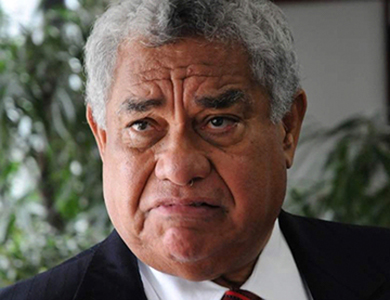(Trinidad Guardian) – A High Court judge has voided CL Financial (CLF)’s decision to sell its subsidiary Clico’s energy assets to Proman Holding (Barbados) Limited over a decade ago.
Delivering an 87-page judgement on Thursday, Justice Davindra Rampersad ruled that former CLF executive chairman and Clico director Lawrence Duprey acted oppressively and unfairly prejudicial to both companies’ interests when he cut the deal three days after the Government bailed them out in early 2009.
As part of his judgement, Justice Rampersad ordered Proman Holding to return CLF and Clico’s 51 per cent stake in Process Energy (Trinidad) Limited (PETL), which operated as Clico Energy Company Limited before Proman bought out both companies’ shares for approximately US$46 million.
Proman Holdings was also ordered to pay CLF the dividends it collected from the shares since 2009 plus interest.
In turn, CLF, which is currently in liquidation, was ordered to reimburse Proman Holding their purchase price plus interest.
According to the evidence in the case, at the time of the deal between CLF, Clico and Proman, CLF controlled 34 per cent, Clico another 17 per cent, with Proman controlling the remainder.
The deal resulted in Pro-man controlling the entire company, which held a sizeable portion of the group’s stake in Methanol Holdings Trinidad Limited (MHTL) and other minor stakes in profitable energy companies.
In 2014, the Inter-national Court of Arbitration ordered Clico to sell its remaining shares in MHTL to Proman’s subsidiary Consolidated Energy Limited (CEL) for US$1.175 billion (TT$7.485 billion).
In attempting to invalidate the sale, the companies claimed that Duprey did not have the authority to sell Clico’s 17 per cent stake in Clico Energy, which they claimed was held by CLF on trust for Clico.
The companies were also challenging the sale price of the shareholding, which was valued at approximately US$130 million in 2012. They also claimed that the deal was in breach of the Memorandum of Understanding (MoU), signed by CLF and the Government to facilitate the multi-billion bail-out, as board approval was not sought by Duprey.
In defence of the case, Proman claimed that Clico did not have its stake registered to avoid paying stamp duty.
“Having regard to the facts before the court, however, the court is convinced that the transfer is still registrable and all that needs to be done is Clico pay the requisite stamp duty and or penalties which have accrued in relation thereto,” Justice Rampersad said, as he noted that the retroactive move is not illegal.
Referring to the MoU, Justice Rampersad noted that while it was not legally binding, it required Proman to enquire whether the deal was legitimately approved before execution.
“It put any third-party, such as Proman for example, on immediate notice that this was not business as usual and further inquiry was required,” Rampersad said.
“In the circumstances, the court is of the respectful view that Proman knew of the existence of the sub-committee for the disposal of assets and the renewed requirements for shareholder resolutions thereby curtailing Duprey’s prior ostensible authority and also failed to make any inquiry whatsoever on the evidence before this court as to whether or not he was authorised to enter into this share purchase agreement in the very unusual circumstances that prevailed at the time,” he added.
While Rampersad ruled that the sale was unauthorised, he still went on to consider expert evidence in the case over the value of the shares and ruled that the sale was grossly undervalued.
“With the business savvy persons who were involved in this transaction, the point of this sale at this time with such haste seemed to have been designed to ensure that Proman got it at the price that it wanted rather than at a fair market value ascertained in an arms-length transaction between two equal parties,” he said.
“The fact that Duprey did not even utter a squeak in opposition is testament to the fact that he was working with Proman to do just that,” Rampersad added.
Although he noted that Proman officials were wrong to go ahead with Duprey, Rampersad ruled that their conduct did not constitute fraud.
He also ruled that Duprey failed in his fiduciary duties under the Companies Act as he failed to act honestly and in good faith with a view to the best interests of the companies.
Rampersad also ruled that he (Duprey) acted without due care and diligence.
Rampersad invited the parties to present additional submissions on whether Duprey, who was unrepresented in the lawsuit, should pay damages for his conduct.
CLF and Clico were represented by Fyard Hosein, SC, Deborah Peake, SC, Kerwyn Garcia, Sasha Bridgemohansingh, and Luanne Boyack.
Proman Holding and PETL were represented by Christopher Hamel-Smith, SC, Jonathan Walker, David Hamel-Smith, and Catherine Ramnarine.





